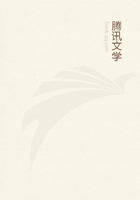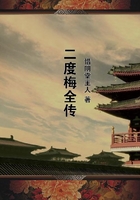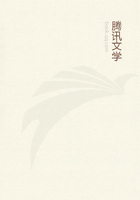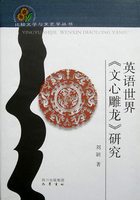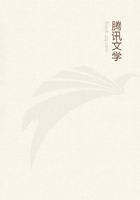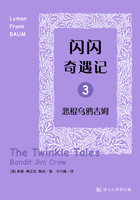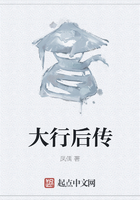This doctrine had its rise not so very long--fifty years--ago. Its principal founder was the French savant Comte. There occurred to Comte,--a systematist, and a religious man to boot,--under the influence of the then novel physiological investigations of Biche, the old idea already set forth by Menenius Agrippa,--the idea that human society, all humanity even, might be regarded as one whole, as an organism; and men as living parts of the separate organs, having each his own definite appointment to serve the entire organism.
This idea so pleased Comte, that upon it he began to erect a philosophical theory; and this theory so carried him away, that he utterly forgot that the point of departure for his theory was nothing more than a very pretty comparison, which was suitable for a fable, but which could by no means serve as the foundation for science. He, as frequently happens, mistook his pet hypothesis for an axiom, and imagined that his whole theory was erected on the very firmest of foundations. According to his theory, it seemed that since humanity is an organism, the knowledge of what man is, and of what should be his relations to the world, was possible only through a knowledge of the features of this organism. For the knowledge of these qualities, man is enabled to take observations on other and lower organisms, and to draw conclusions from their life.
Therefore, in the fist place, the true and only method, according to Comte, is the inductive, and all science is only such when it has experiment as its basis; in the second place, the goal and crown of sciences is formed by that new science dealing with the imaginary organism of humanity, or the super-organic being,--humanity,--and this newly devised science is sociology.
And from this view of science it appears, that all previous knowledge was deceitful, and that the whole story of humanity, in the sense of self-knowledge, has been divided into three, actually into two, periods: the theological and metaphysical period, extending from the beginning of the world to Comte, and the present period,--that of the only true science, positive science,--beginning with Comte.
All this was very well. There was but one error, and that was this,--that the whole edifice was erected on the sand, on the arbitrary and false assertion that humanity is an organism. This assertion was arbitrary, because we have just as much right to admit the existence of a human organism, not subject to observation, as we have to admit the existence of any other invisible, fantastic being.
This assertion was erroneous, because for the understanding of humanity, i.e., of men, the definition of an organism was incorrectly constructed, while in humanity itself all actual signs of organism,--the centre of feeling or consciousness, are lacking.
{2}({2} We designate as organisms the elephant and the bacterian, only because we assume by analogy in those creatures the same conjunction of feeling and consciousness that we know to exist in ourselves. But in human societies and in humanity, this actual sign is absent; and therefore, however many other signs we may discover in humanity and in organism, without this substantial token the recognition of humanity as an organism is incorrect.)
But, in spite of the arbitrariness and incorrectness of the fundamental assumption of positive philosophy, it was accepted by the so-called cultivated world with the greatest sympathy. In this connection, one thing is worthy of note: that out of the works of Comte, consisting of two parts, of positive philosophy and of positive politics, only the first was adopted by the learned world,--that part which justifieth, on new promises, the existent evil of human societies; but the second part, treating of the moral obligations of altruism, arising from the recognition of mankind as an organism, was regarded as not only of no importance, but as trivial and unscientific. It was a repetition of the same thing that had happened in the case of Kant's works. The "Critique of Pure Reason" was adopted by the scientific crowd; but the "Critique of Applied Reason," that part which contains the gist of moral doctrine, was repudiated. In Kant's doctrine, that was accepted as scientific which subserved the existent evil. But the positive philosophy, which was accepted by the crowd, was founded on an arbitrary and erroneous basis, was in itself too unfounded, and therefore unsteady, and could not support itself alone. And so, amid all the multitude of the idle plays of thought of the men professing the so-called science, there presents itself an assertion equally devoid of novelty, and equally arbitrary and erroneous, to the effect that living beings, i.e., organisms, have had their rise in each other,--not only one organism from another, but one from many; i.e., that in a very long interval of time (in a million of years, for instance), not only could a duck and a fish proceed from one ancestor, but that one animal might result from a whole hive of bees. And this arbitrary and erroneous assumption was accepted by the learned world with still greater and more universal sympathy.
This assumption was arbitrary, because no one has ever seen how one organism is made from another, and therefore the hypothesis as to the origin of species will always remain an hypothesis, and not an experimental fact. And this hypothesis was also erroneous, because the decision of the question as to the origin of species--that they have originated, in consequence of the law of heredity and fitness, in the course of an interminably long time--is no solution at all, but merely a re-statement of the problem in a new form.

